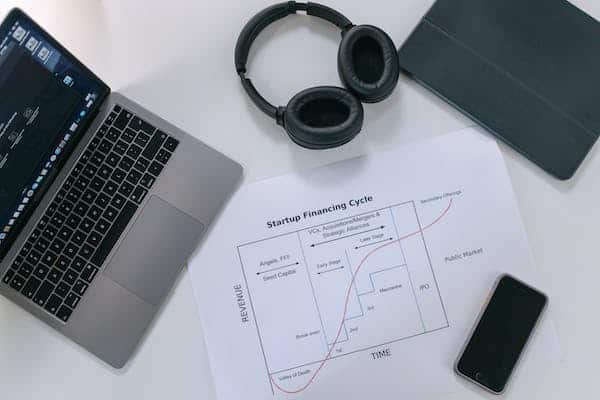E-Learning for Schools in Nigeria | What You need to Know

E learning in gradually becoming indispensable for education institutions in Nigeria – from primary to secondary and tertiary institutions of learning. This post covers everything you need to know about e-learning for schools in Nigeria.
The advent of mobile technology has exposed Nigeria to a lot of global technological trends, and online learning is one of such trends.
Though e-learning in Nigerian schools has received very low popularity the recent COVID-19 pandemic has made it a necessity to find alternative learning models to help students achieve their learning milestone.
Television and radio classes were offered to achieve this as well as some forms of e-learning like WhatsApp classes ran by private schools.
This has left a large chunk of the student unattended. This kind of laxity calls for a quick adjustment and adoption of cloud-based learning.
In the wake of the Covid-19 pandemic, interest in e-learning has spiked in Nigeria and the need to provide students and teachers with an alternative to brick and mortar classroom and face-to-face learning.
The main challenge to this is the minimal information available to schools on what on-line learning is and how it can be used to improve education. Hence the question; what is e-learning?
Read also: Best Learning Management Systems in Nigeria
What is E-learning?
E-learning, also referred to as online learning, is a learning model that is facilitated through the internet with the mode of delivery being, mobile phones, computers, or tablets.
E-Learning uses electronic technologies to deliver curriculum-based education. It is delivered completely online.
Other Terms for E-learning
E-learning has many synonyms many people are more comfortable with.
Other popular words for e-learning are electronic education, online learning, distance learning, remote learning, learning management system, LMS, online class, online courses, online university, virtual learning, and many more.
Digital learning makes it easy to deliver courses with ease and convenience and allows students to learn at their own pace anywhere and anytime without all the restriction of a physical classroom.
For instance, a student needs not to be in class for a specific period like school resumes 8 am-3 pm, rather the student can choose when to log in to the learning portal and complete his/her course module.
The internet has provided an opportunity to overcome challenges in learning by improving the convenience, cost-effectiveness, and delivery quality of curriculum-based education in a few private secondary schools and tertiary institutions in Nigeria.
The government institutions which cater to the larger percentage of Nigerian students are still behind in this new shift in the learning curve.
This is the 21st Century and more efforts should be made towards providing e-learning portals and platforms for our schools.
Considering the challenges faced by the educational system in Nigeria owing to inadequate classrooms, inadequate teaching and non-teaching staff, inadequate infrastructures, and a host of socio-economic factors, online learning is the way to go.
Read more on why every school in Nigeria needs e-learning
The School System in Nigeria
Nigeria’s education system – 9-3-4 education system – has three different levels namely: basic education (nine years), post-basic/senior secondary education (three years), and tertiary education (four to six years, depending on the program of study).
The new system requires every child to have a compulsory and unbroken nine-year education, all in the primary school. This will be followed with a three-year secondary education and then a four-year higher education.
AllAfrica.com
The school-age typically starts from age six for basic education but in recent times the elementary education has evolved to accommodate children from the age of 3, hence the birth of prep and kindergarten.
Unofficially, though the education system in Nigeria technically has four levels. Prep, Basic, Post basic, and Tertiary level. The post covers e-learning for schools in these levels of education in Nigeria.
The academic year runs from September to July. The universities mostly use a semester system of 18 – 20 weeks while some from January to December, divided into 3 terms of 10 -12 weeks.
When I talk about e-learning for schools in Nigeria, I am referring to integrating remote or blended learning in the basic, senior secondary and higher education institutions in Nigeria.
Basic Education
Elementary education covers the prep classes and grades one through six. Schools in this category are nursery and primary schools, Montessori and junior secondary schools.
There is no doubt that with the current trend in education, e-learning is needed in schools in basic education level in Nigeria.
According to the UNESCO, the Universal Basic Education guidelines adopted in 2014, the curriculum includes English, Mathematics, a Nigerian language, basic science and technology, religion and national values, and cultural and creative arts, Arabic language (optional).
Pre-vocational studies (home economics, agriculture, and entrepreneurship) and the French language are introduced in basic 4.
English is the common language through which school lessons are delivered.
Though, Nigeria’s national policy on education states that lessons for the first three years of elementary education should be the “indigenous language of the child or the language of his immediate environment”, most commonly Hausa, Ibo, or Yoruba. This policy is rarely followed.
The Primary School Leaving Certificate is awarded to the student who completes Basic 6.
Read also: Using Gopius LMS for e-learning in Basic Level of Education
Post Basic
After completion of basic 6, students continue to the junior secondary school.
The curriculum includes the same subjects as the elementary stage but adds business studies and others.
On completion, students are awarded the Junior School Certificate, based on their performance in final examinations, the Junior WAEC.
Senior Secondary Education lasts three years and students are required to cover four compulsory core subjects; English language, Mathematics, Civic Education, and one Trade/Entrepreneurship subject.
Then add electives in four areas of concentration; humanities, science and mathematics, technology, and business studies.
At the end of three years, students sit for their final exams and are awarded Senior School Certificate.
E-learning also plays vital roles in post-basic schools in Nigeria.
Tertiary Education
Tertiary education in Nigeria typically runs for four to six years depending on the field of study or the tertiary institution attended.
Students can either be admitted to the college of education, the polytechnic, or the university.
On completion of the course of choice, students are either awarded, Ordinary National Diploma (OND), Higher National Diploma (HND) or a First Degree (BSc.) depending on the school attended.
A recent study published in the Journal of Education and Practice shows that most students agreed that e-learning help students have access to unlimited information; shows the relationship between subjects and improves critical thinking.
It also shows that most teachers agreed that e-learning makes teaching easier, helps to develop computer skills and it is more effective.
It is given in the study that 96.88% of students agreed that remote learning helps them learn faster and 90.63 % agreed that e-learning prepares students for life after school. And 85.7% of teachers agreed that e-learning makes teaching easier and efficient while 91.4% agreed that teachers provide opportunities for students to apply their skills and construct their knowledge.
E-learning is most popularly used by students and teachers in the higher education institutions in Nigeria.
Learn more about the impact of e-learning in primary and secondary schools in Nigeria in the Journal of Education and Practice.
Read also: Using Gopius LMS for E-Learning in Higher Education Institutions
Benefits of E-Learning for Schools in Nigeria
A trip to a public school; both elementary and secondary will sadden you. A glaring inadequacy of infrastructure to cater for students cannot be missed. On average, a classroom sits about 80-100 students.
There is barely room left for the instructor to stand. In some parts, students have to either stand or sit on the ground.
To worsen matters, the delivery system for the curriculum or subjects is instructor-centered, not student-centered. It is at the most theoretical with very little practical projects to enhance the learning experience.
A recent statistic shows that the net enrollment rate at the elementary level in Nigeria is 63.8 percent compared to a global average of 88.8 percent while approximately one-quarter of current pupils drop out of elementary school
Data reported by the World Bank.
According to the statistics JAMB provides on its website,
a total of 1.579,027 students sat for the UTME exam in 2016. 69.6 percent of university applications were made to federal universities, 27.5 percent to state universities, and less than 1 percent to private universities. The number of applicants is more than the number of available university seats by a ratio of 2:1.
Nigeria’s system of education currently leaves over a million qualified college-age students without access to post secondary education yearly. Get full details on educational challenge in Nigeria on guardian.ng
Technology and e-learning will go a long way in alleviating these current challenges in our educational institutions.
Below are the top benefits of e-learning for schools in Nigeria:
1. Cost-Effectiveness.
This is a major challenge in Nigeria with an ever-rising cost of education even in public schools. E-learning will help schools to reduce costs for training and teaching expenses such as transportation, accommodation, meals, and physical materials. The teaching staff can then be trained in using e-learning systems with money saved. It removes the need for classroom-based lessons which automatically resolves the issue of overcrowded classrooms and inadequate amenities in school.
2. Saves Time
Particularly here in Nigeria where commuting daily takes hours on end, remote learning is the answer. The hours spend commuting to school can be converted to more productive time learning. Furthermore, it will also solve time-wasting that arises from strike actions. Going for e-Learning also means that courses can be cut into chunks and spread out over days or weeks so that the school would not lose a student for entire days at a time. Also, students can utilize holidays, preparing for the next class which improves productivity and saves time of taking notes in class.
3. Capacity Building and Consistency.
Using e-learning systems increases the capacity of educators. A large number of students can be reached without the stress involved in traditional classrooms and lessons are consistently delivered to all learners. A sick off, annual leaves, or holidays will not affect learning as it typically does in traditional learning.
4. Improved Memory Retention
A cloud-based learning system eliminates the stress of commuting to school daily by students. This allows for a calm and collected disposition to receive knowledge. This stress relief coupled with the interactive and collaborative style of delivery offered by learning management memory retention is improved. While a class cannot be repeated in a brick and mortar school, students can access lessons as many times as needed. The course modules can also be easily updated when needed.
5. Personalized Learning
One of the major benefits of a good e-Learning system is that it supports personalized learning. Learning patterns and tools can be customized to accommodate diverse learning styles. It is not a one-size-fits-all system. Students can go over lessons at their own pace, in their own time, and as many times as they seem fit. E-Learning tools let students decide their learning experiences; they can skip a module they are already good at and spend more time studying modules they find challenging.
6. Increased Collaboration
E-learning offers collaboration amongst students and teachers. It builds teamwork and fosters interpersonal skills. Different communication techniques such as streaming videos, case studies, story-telling, group chat, demonstrations, role-playing, coaching, mentoring, and discussion forums.
7. It is easily measurable
When using a learning management system to deliver your e-learning, then tracking learner progress and assessment becomes easy.
8. Reduces carbon footprint
Printing and reprinting materials or carrying of numerous textbooks about by student is eliminated. Students will have their textbooks in soft-copy or electronic copy. There will also be no need for printing exam assessment and exam questions. E-learning eliminates printing cost and the headache that comes with.
9. Flexibility
It is accessible at any time of the day from anywhere. Unlike the traditional learning that mandates a certain time and period for learners to be available. Missed lectures cannot be accessed again, but e-learning allows that.
10. Advancement and efficiency
Technological advancement in recent times has caused a paradigm shift in several industries and professions. It has become the determinant of skill relevance and efficiency. Students that are taught using the learning management system have an edge. They are familiar and more abreast of technology trends in learning and business. Students become more advance in thinking and more efficient at the use of and workings of technology since they have been learning with it.
Wrap Up
To wrap this up, an all-inclusive learning management system or e-learning platform that will support collaborative as well as personalized learning tools is the best LMS any school can adopt.
GopiusLMS is one of such LMS in Nigeria.
An LMS that can be customized to fit your students learning needs and make the administrative work stress free is what every school needs to come onboard the remote learning train.
TRY GOPIUS FOR FREE NOW!
Why Gopius?
Gopius is an innovative e-learning platform that meets modern-day training needs. You need no technical knowledge to build your courses on the platform. It offers seamless integration and allows for white labeling.
Gopius offers curriculum-based content. Tracking learning progress has not been easier and you don’t have to worry about installations, maintenance, and backups, Gopius takes care of that for you.
Thinking about the cost? Do not worry, get a Gopius free trial now!







